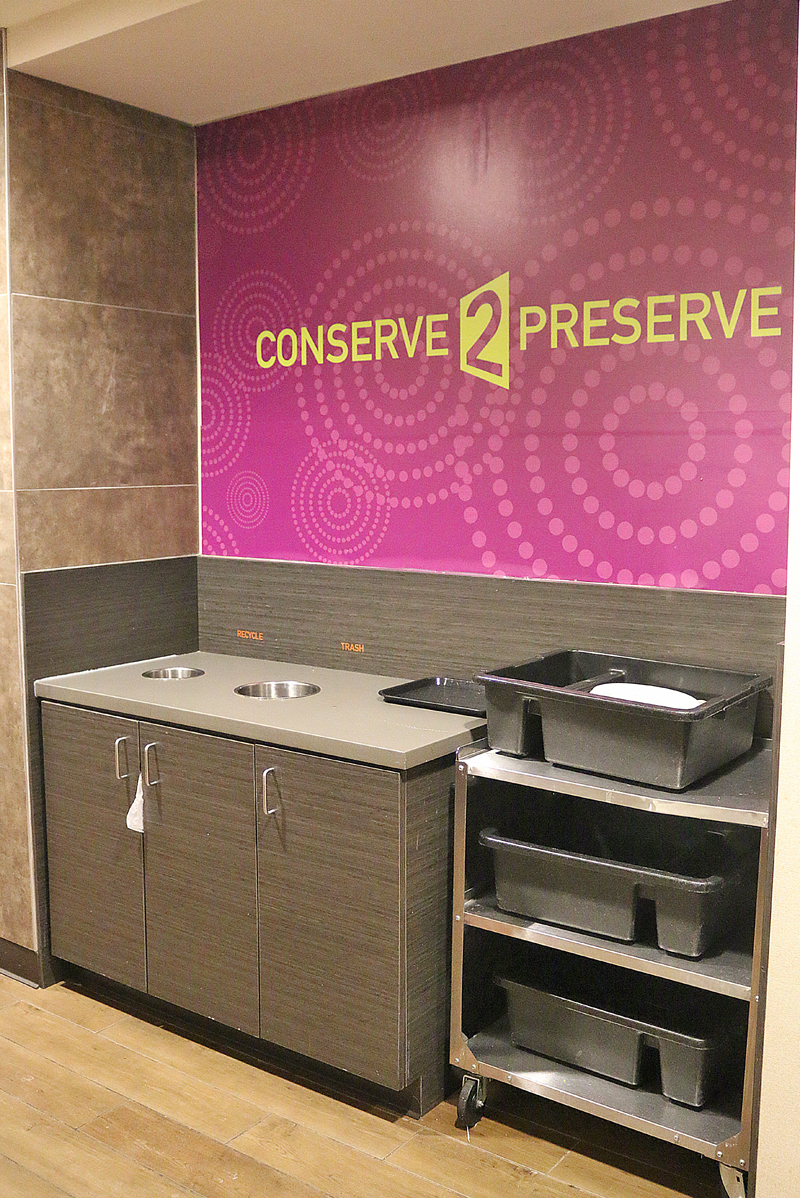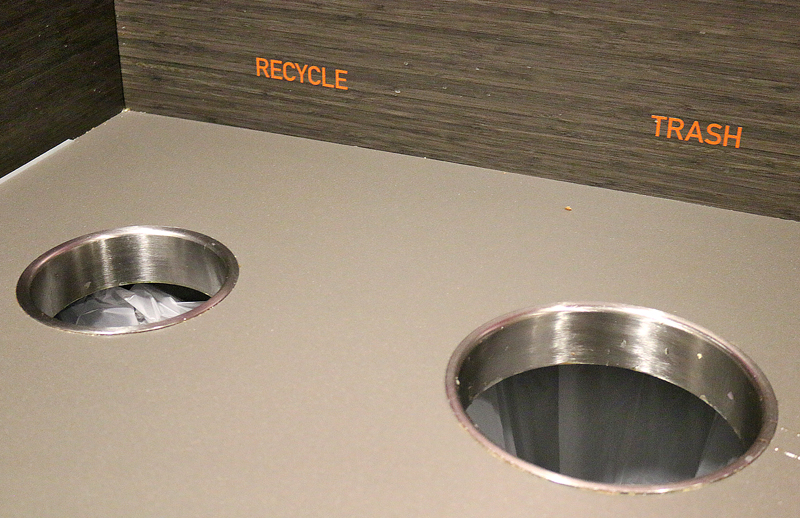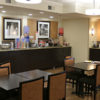As I was sitting while having breakfast at the Home2 Suites by Hilton Pittsburgh Cranberry, PA hotel property, a conversation started between me and an employee who worked at that hotel property — and she told me something about recycling which I had never thought pertaining to lodging…
Doing This Ruins Recycling. Please. Don’t Do This.

…and that is to never put anything other than items which can be recycled in the Recycle bin.
That seems like a simple concept — right?
Think again.
“You’d be surprised at how many people scrape their food into the recycle bin,” said the employee. “Once food scraps are dumped in there, anything that is in that bin can no longer be recycled. It becomes garbage.”
Most guests and visitors do not do this purposely. In this case, part of the blame may be on the design of the station at which the disposal of both recycled products and trash occurs.

At this particular hotel property, the orange letters of the words Recycle and Trash on the wall do not contrast enough against the brown faux wood background, and the two holes which are adjacent to each other in the counter are identical; so confusing them can be very easy to do — especially when one is not paying full and complete attention to what one is doing.
While this involuntary reduction of recycling at this one particular hotel property is not exactly a worldwide environmental crisis, multiply it by the number of guests in general who mistakenly dispose of their garbage in the Recycle bin — as well as the number of hotel and resort properties which have a similar policy and setup and therefore can be conducive in this accidental behavior — and the numbers become increasingly more significant.
Summary
Please take an extra moment or two to ensure that you do whatever you can to avoid contaminating products which are destined to be recycled. Regardless of whether it is done accidentally or purposely, carelessly disposing of food and other wrong items into the recycle bin renders the items already in there which were to be recycled to instead be destined for the trash bin.
Better design in general for the separation of items to be recycled versus trash — combined with people taking only a few moments to ensure that they are completely alert and give their undivided attention to what needs to be done correctly — may help go a long way overall towards the reduction of waste and protecting our environment.
Other articles pertaining to plastic waste and recycling include:
- Hyatt Hotels Corporation to Replace Smaller Plastic Amenities Packages and Water Bottles Worldwide
- Ban of Single Use Plastic Toiletry Bottles at Hotels to Become Law in California
- Bulk Amenities to Replace Bathroom Miniature Packages Across All Brands of Marriott International, Incorporated
- Bulk Amenities to Replace Bathroom Miniature Packages Across All Brands of InterContinental Hotels Group
- Miniature Toiletry Bottles in Hotels: What Really Should Be Done
- Wall Mounted Dispensers Versus Small Bottles of Amenities in Hotels
- Sale of Single Use Disposable Plastic Water Bottles Banned by San Francisco International Airport
- We Ingest Enough Plastic to Eat One Credit Card Per Week
- Single Use Plastic Toiletry Bottles at Hotels to Become Illegal in New York?
- Single Use Plastic Toiletry Bottles at Hotels to Become Illegal in California?
- Stupid Tip of the Day: Use Recycling Bins Whenever Possible
- Earth Day 2019: Clean the World by Recycling Used Soap and Plastic Bottles
- Earth Day 2018: Clean the World by Recycling Used Soap and Plastic Bottles
- Earth Day 2017 — and What Hilton is Doing to Help Save the Environment
- …and the Overpackaging of Hotel Amenities Award Goes To…
All photographs ©2019 by Brian Cohen.
